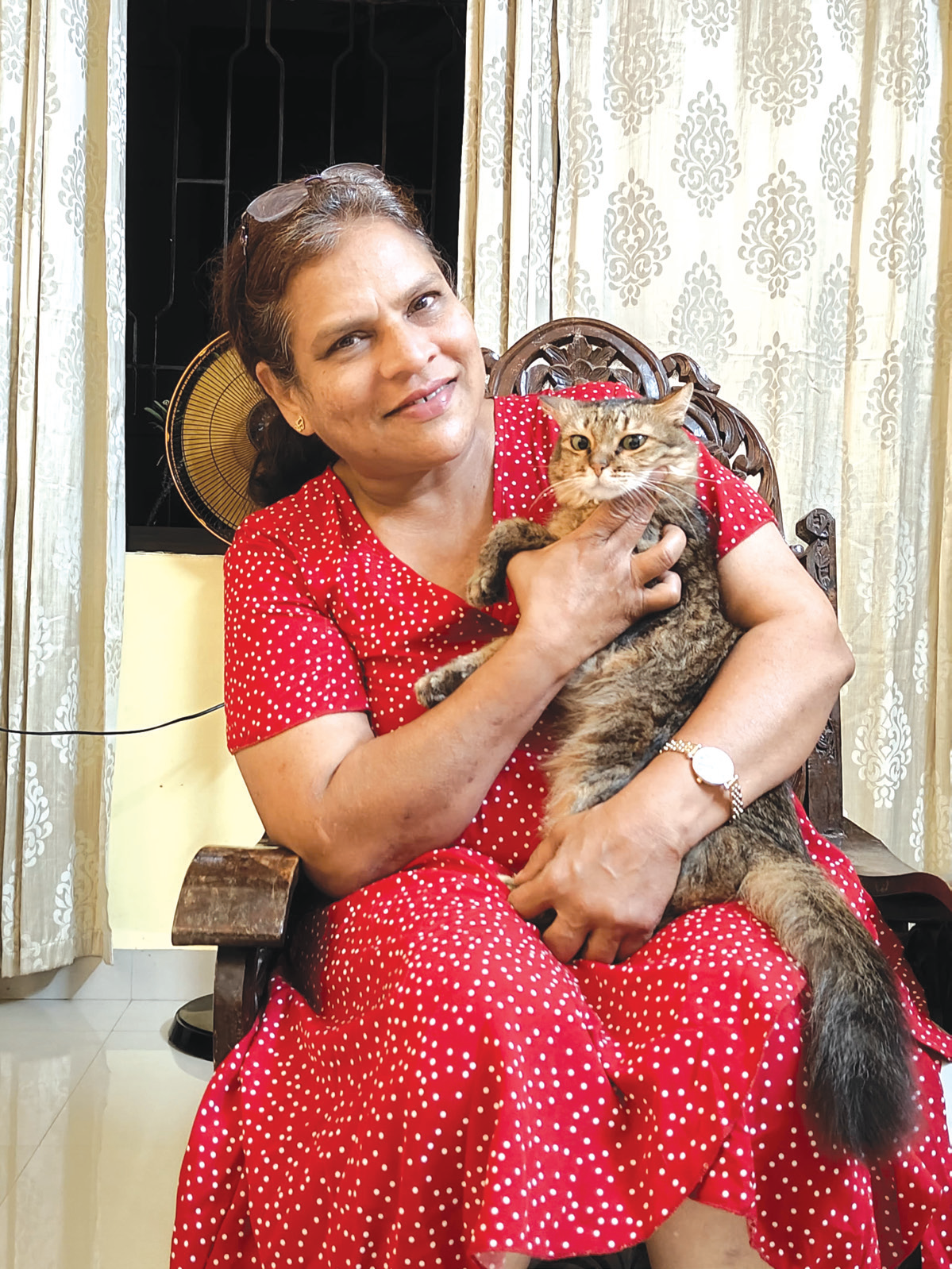

ANISHA FRANCIS
anisha@herald-goa.com
MARGAO: Judy Correia doesn’t remember how many stray cats she’s gotten sterilised. Ask her to do the math, and she tries: “When I started, I managed to trap around eight cats a month – that’s how many surgeries I could afford to pay for. As the years went by and I received support from friends, veterinarians, and Good Samaritans, I was able to scale up. My target now is 60 cats a month, though it can vary from 20 to 80. Over the past 30-odd years. You do the math,” she laughs.
Judy, who lives in Borda, Margao, has been a one-woman army, catching stray cats, getting them sterilised, nursing them until they heal, and then dropping them back where she found them. “Most of these cats are from the market. People dump kittens here daily, and the ones that survive into adulthood reproduce within a few months, leading to more kittens. Cats can have up to five litters a year,” she stresses. “Yet, the government doesn’t have a programme to spay or neuter cats,” she laments.
Judy, originally from Aldona, was raised by her childless aunt and uncle in Raia. “They had a farm of sorts, and I grew up alongside goats, cows, and chickens. I don’t recall ever having a special liking for cats in my childhood,” she says.
One rainy day in the 1990s, a heavily pregnant female cat walked into her home and gave birth within a few hours. “I adopted the cat, or rather, she adopted me. I managed to find families for her kittens, but within a few months, she was pregnant again. I didn’t know better, so I didn’t spay her until much later,” she recalls, adding that it got her thinking about how cats and kittens
survive on the streets. The short answer is that many don’t – they get run over by vehicles,
contract infections, or get attacked by dogs.
“The government funds an ABC programme to sterilise dogs because dogs are a more visible ‘problem’ to society. They’re seen as a nuisance – they chase vehicles, bite people, bark all night – so there’s more urgency to control their population. Cats, on the other hand, stay hidden and don’t pose a major problem to humans. Also, from my experience, people who own cats find it easier to ‘get rid’ of unwanted kittens than to pay for sterilisation,” she says.
“People are quite nonchalant about it. They casually describe gathering up their cat’s newborn kittens in a plastic bag and dumping them in a field, at a fish market, or even in a water body. It’s as though the suffering of the animal doesn’t even register in their minds,” she adds.
While Judy believes the government should introduce a cat
sterilisation programme or at least offer free surgeries at government veterinary hospitals, she’s not waiting for that to happen.
Her process is straightforward: feed the cat, befriend it, and then trap it in a cage. The next morning, she takes the cat(s) to the vet for surgery and brings them home for recovery. Once the wound heals – the next day for males and within two days for females – she releases the cat back where she found it, or returns it to its owner, if that’s the case. “In my eyes, an owned cat and a stray cat are the same. In fact, a stray cat will never abandon her kittens - she will feed them and protect them until they can fend for themselves. It’s the owned cats that need to be spayed most urgently, as the humans tend to do away with unwanted kittens,” she stresses.
Over time, Judy began taking in cats she knew wouldn’t survive outdoors – blind cats, elderly cats, and special-needs cats with conditions like lameness or wobbliness. As her numbers grew, she realised her small flat wasn’t enough. Her daughter, who lives in Chandor, offered her a small plot of land, where Judy
decided to establish ‘Goa Cat Haven’ – a halfway home for sick and injured felines and a recovery spot for
sterilised cats.
“I wanted to fence the plot and give the cats a large space to roam around, but that would cost about Rs 12 lakh. With the funds I managed to raise, I built a cattery for now. It’ll soon become a full-fledged haven,” she says confidently. Judy has harnessed the power of social media, using it to raise funds and connect with charitable veterinarians to further her cause.
“I don’t want Goa Cat Haven to be a shelter. I want people to visit the cats, play with them, and understand them better. It’s our collective responsibility to address the challenges they face,” she says.
Recently, Judy organised a weeklong drive to collect cats from across South Goa and transport them to the compassionate doctors at Worldwide Veterinary Services (WVS), who offered to sterilise them free of charge. Each day, she sent around 20 cats—some trapped in the market, others brought to her by their owners. It was a massive undertaking that began at 6 am, with multiple trips between Borda and Chandor. Judy carefully labelled and marked the cats, kept them overnight at Chandor, and then transferred them into individual carriers for the bumpy journey to Assagao.
“It was a very fruitful month for us. We sterilised many cats and exceeded my target,” she smiles.